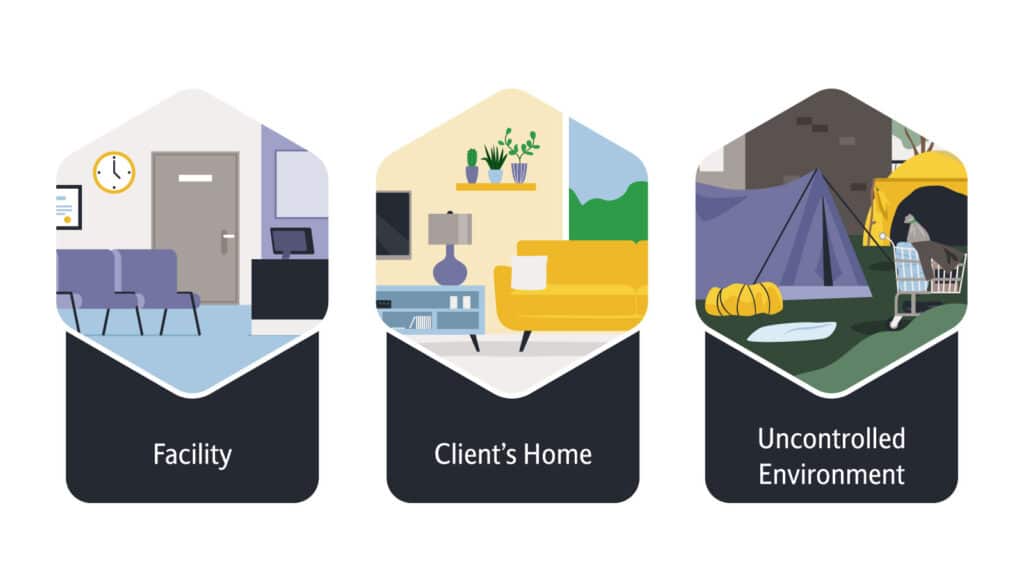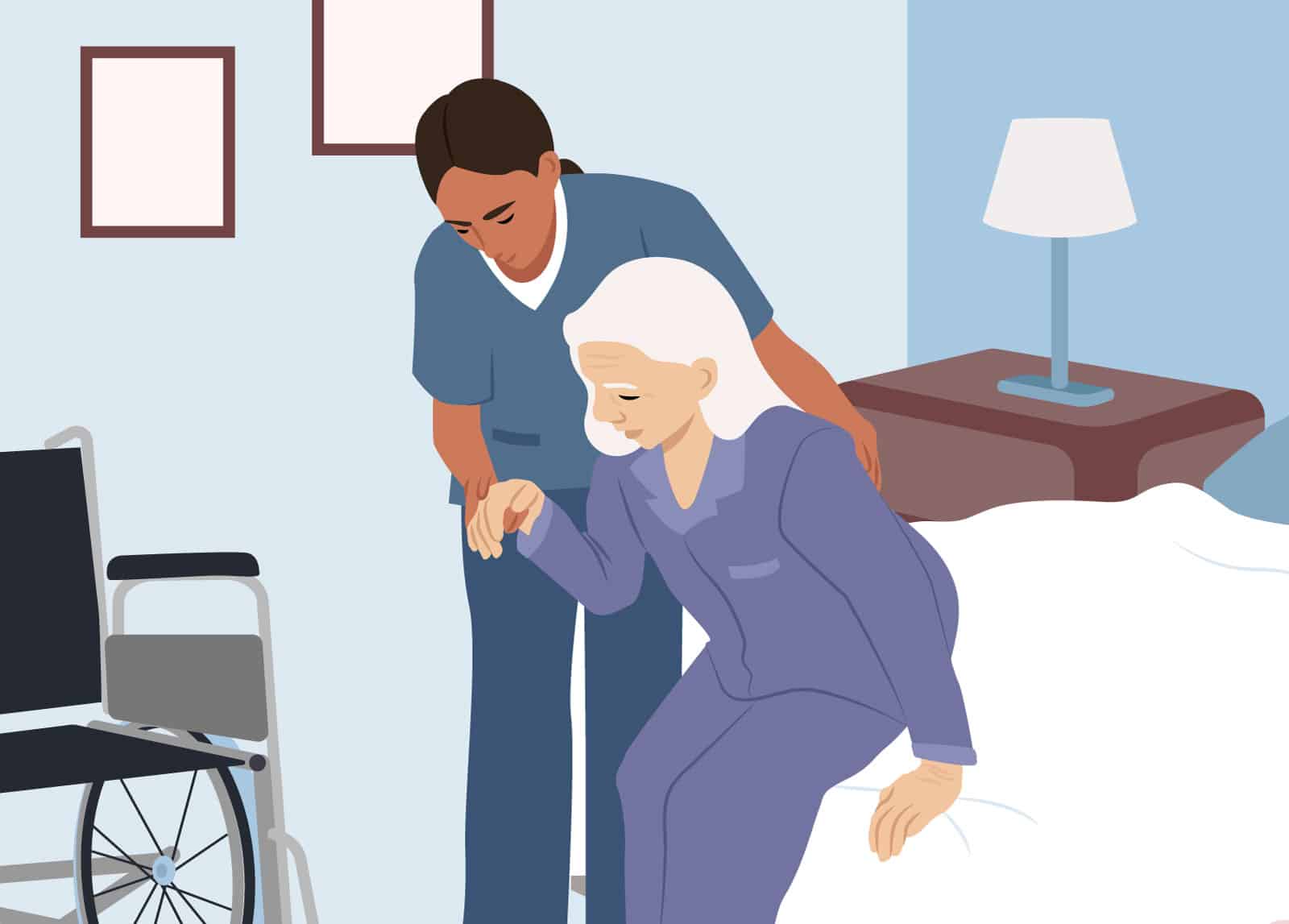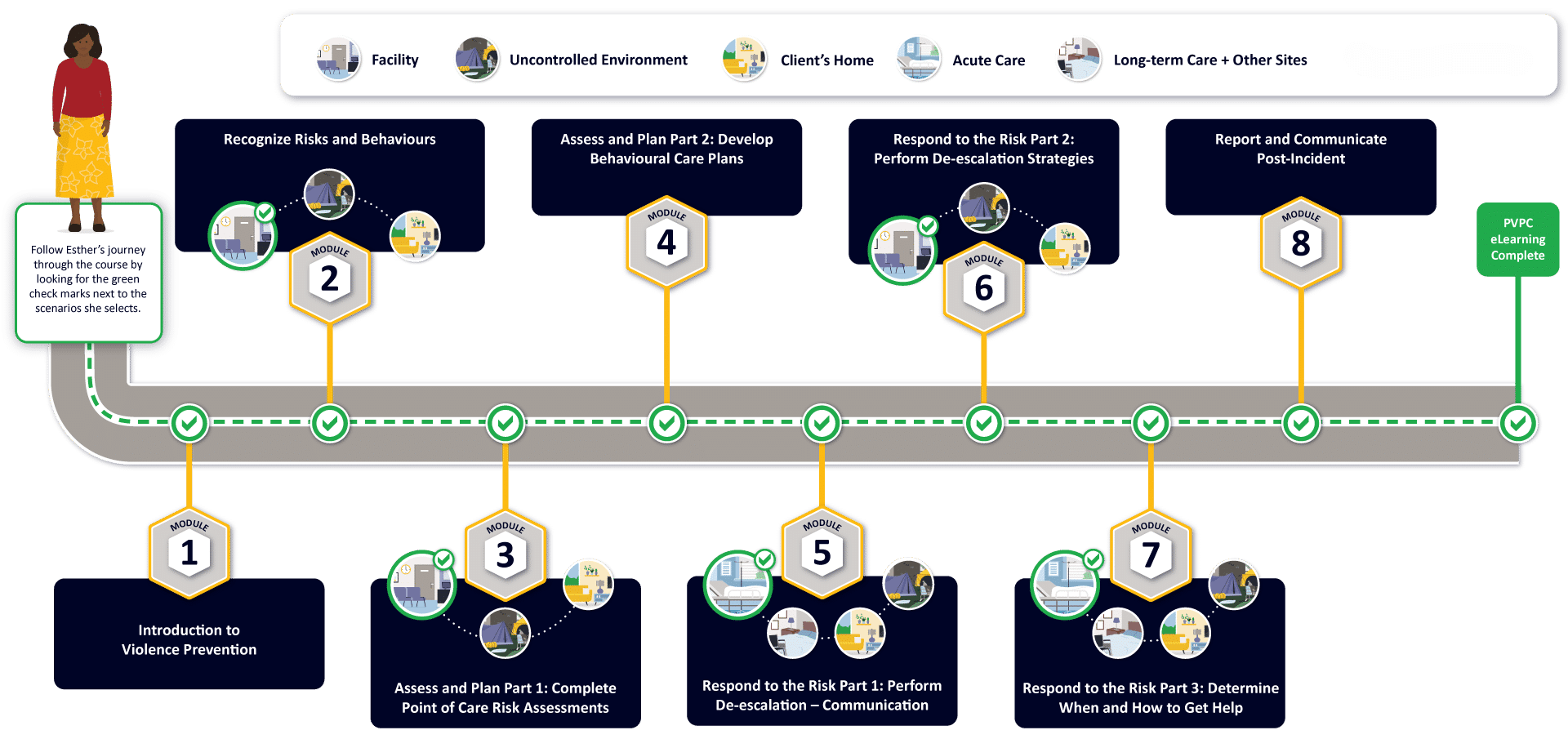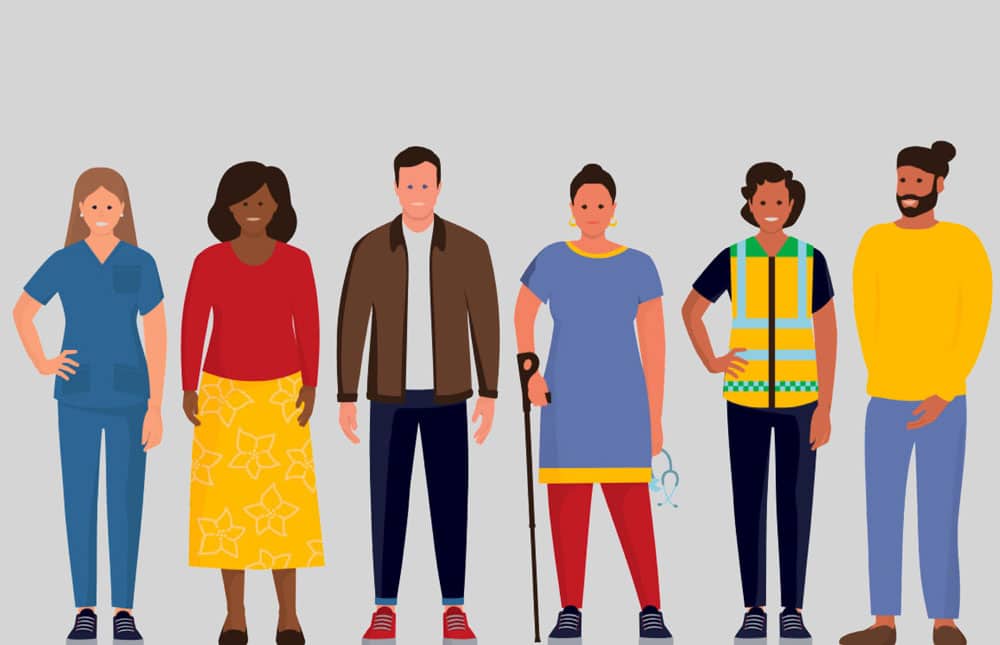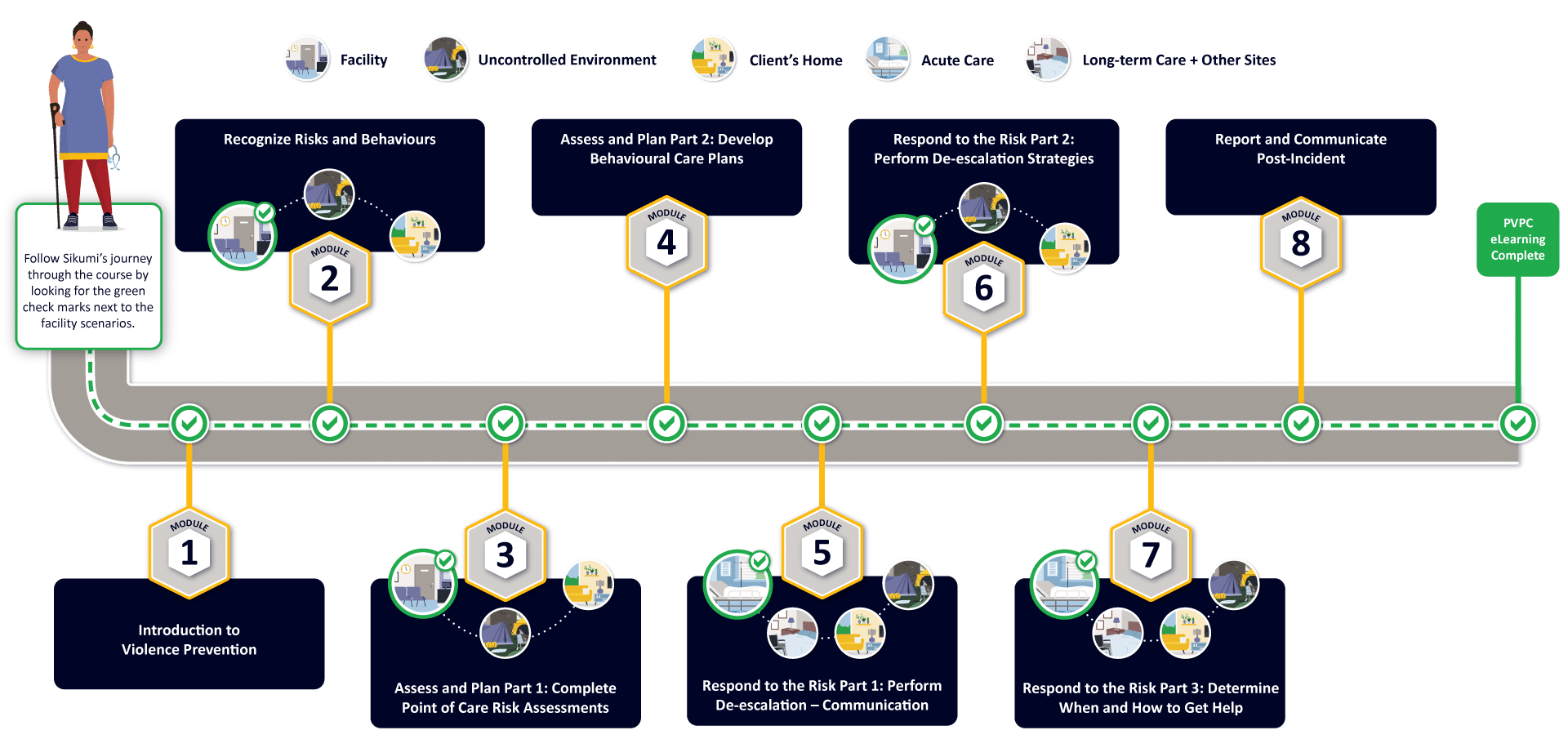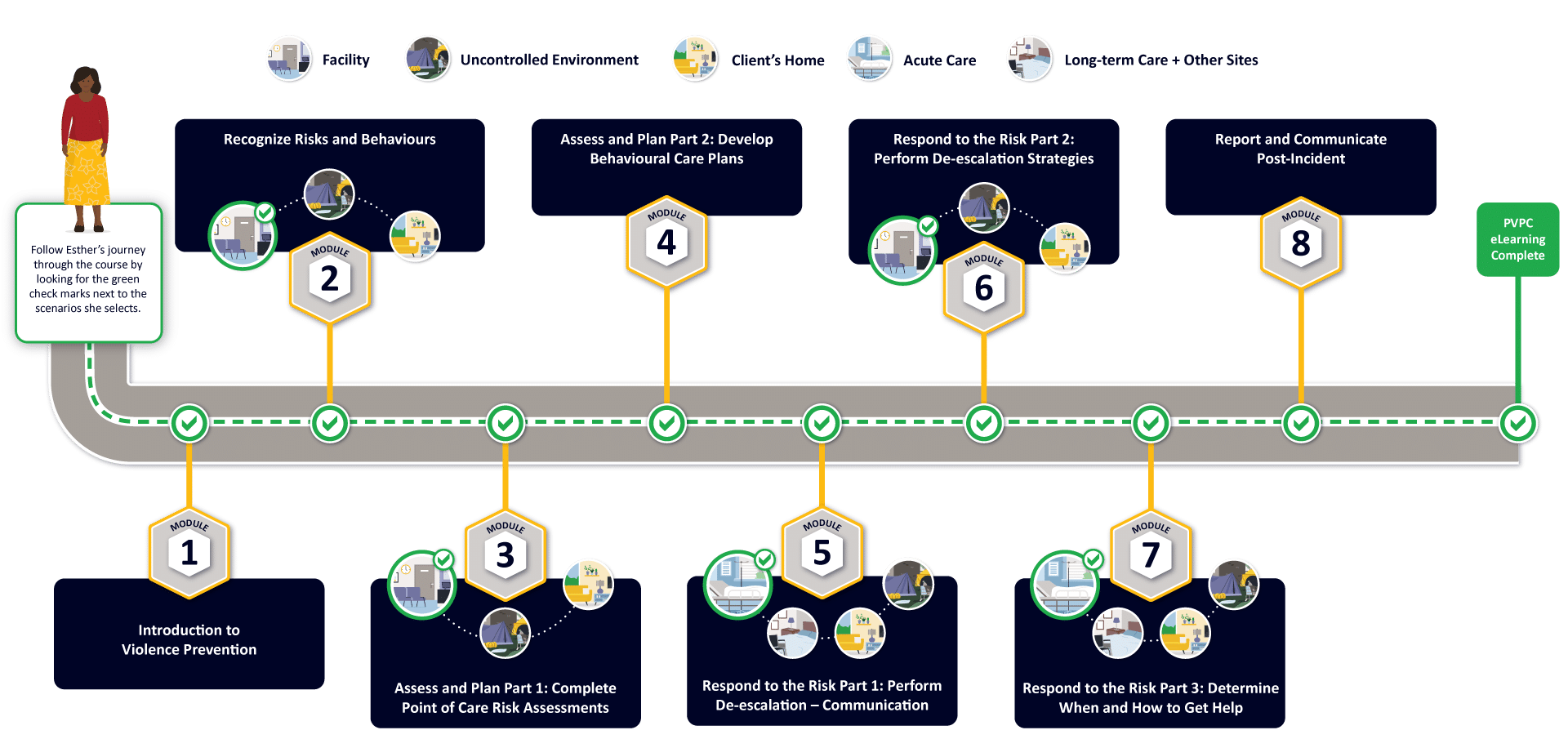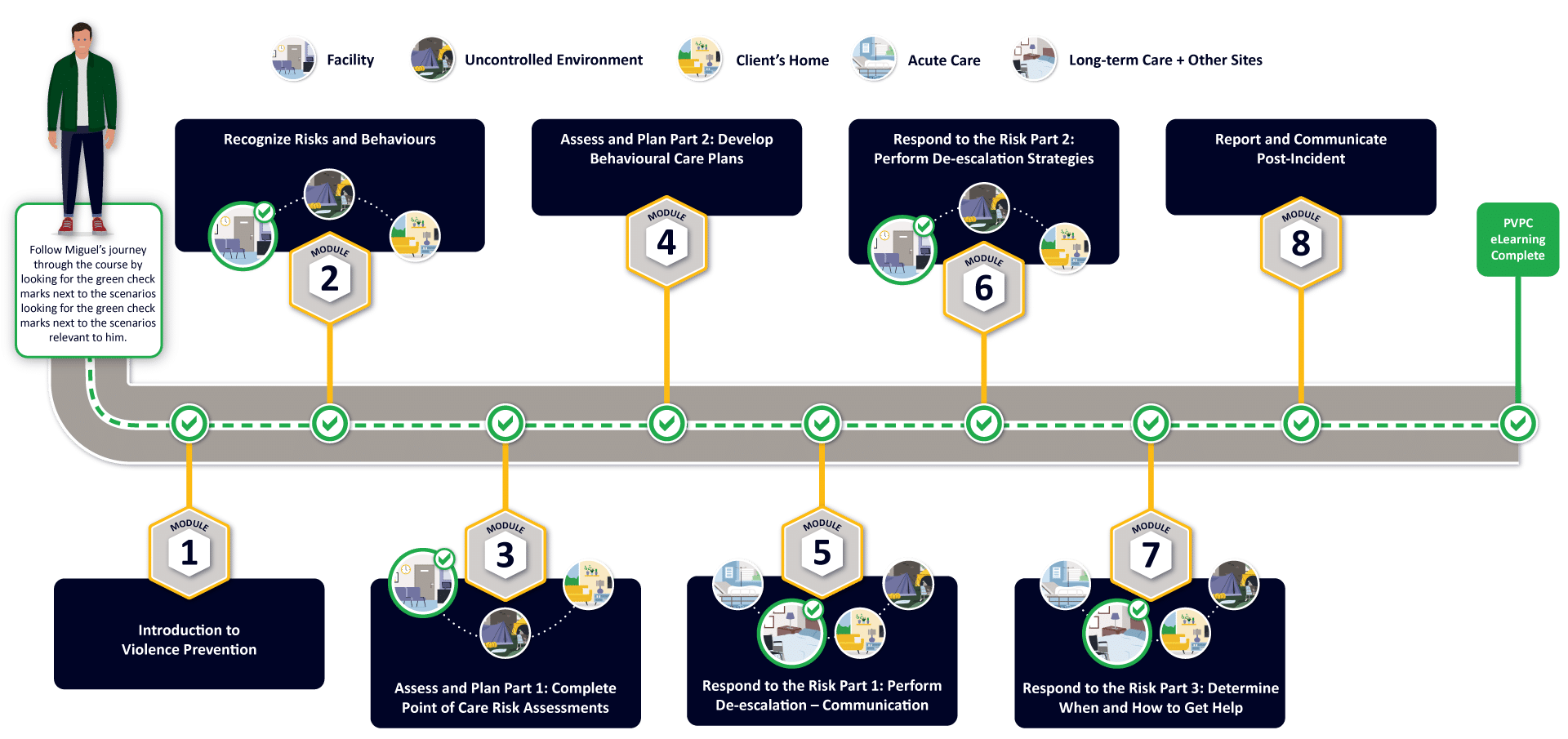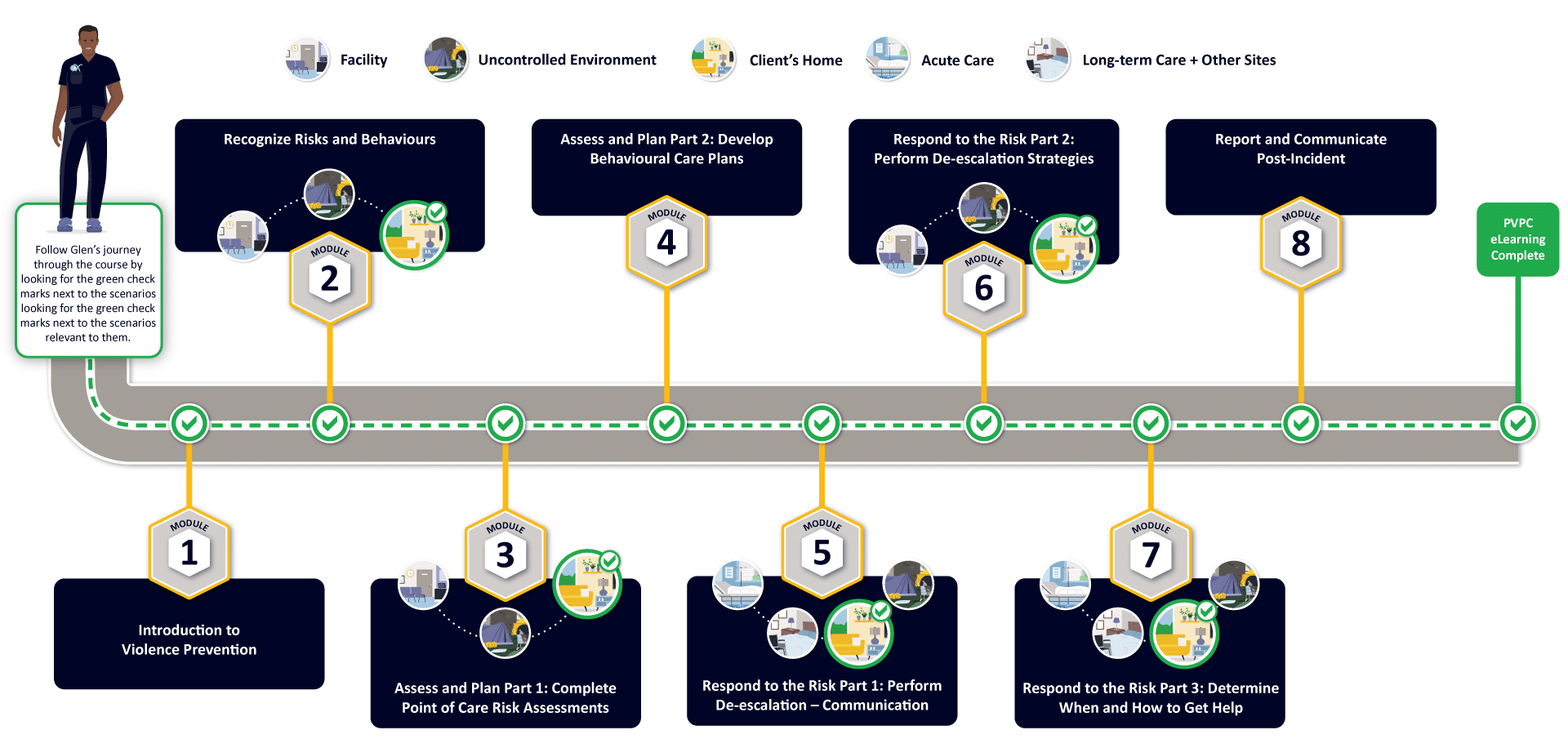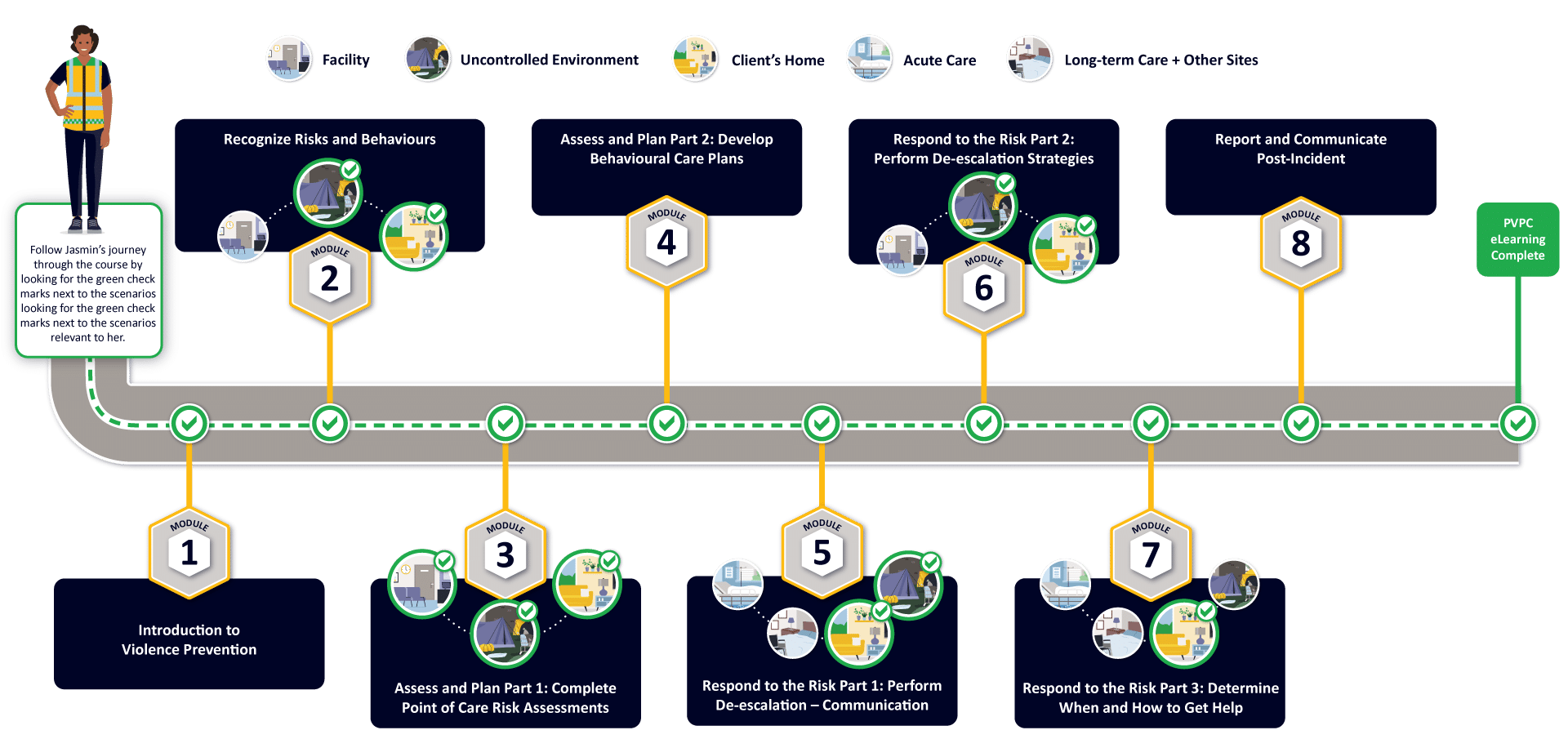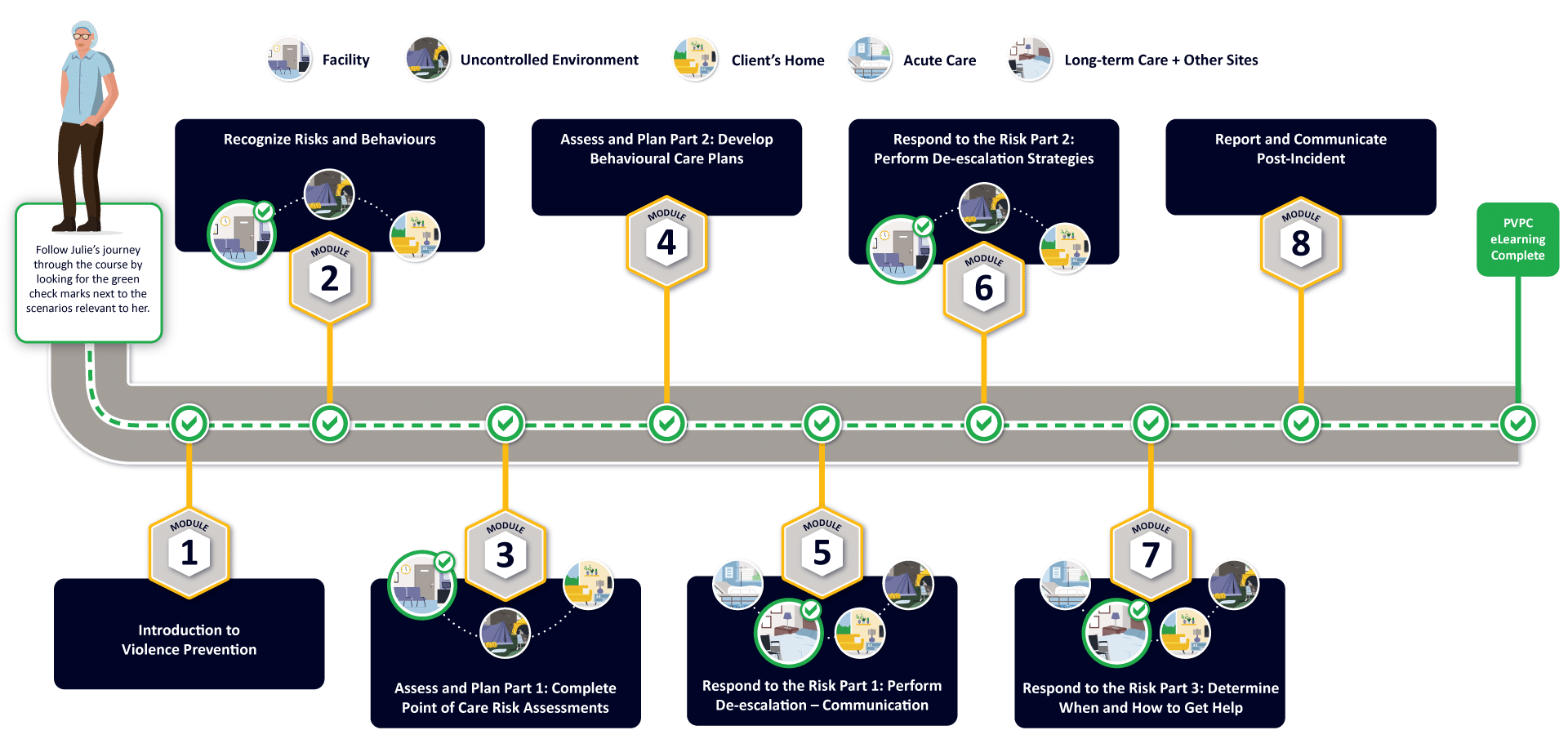
Refreshed violence prevention training
- Integrated cultural safety and humility, trauma-informed practice, and equity, diversity, and inclusion principles.
- Healthcare scenarios relevant for today.
- Customized content and interactive learning activities with a contemporary design.
- New accessibility features, including narrated presentations, closed captioning, playback speed control, and mobile compatibility, helping ensure learners can access and utilize the training in ways that meet their needs.
To help ensure we made updates that support health workers in their real-world environments, we asked for their opinions through in-person and virtual meetings and surveys. Here’s a quick look at engagement that informed the updated PVPC.

1,513 people advised the refresh

110+ types of jobs in healthcare

147 engagement opportunities
Refreshed PVPC eLearning Course Journey
In the refreshed eLearning course, all participants learn the same core skills, while having the opportunity to choose to practice those skills in scenarios that most closely apply to their role and workplace. Some participants also receive additional content. This course is designed for people in all healthcare workplaces, including hospitals and facilities, community and client homes, and long-term care.
Click on each circular worker image to see their refreshed eLearning journey:
Scenarios and Additional Content
In the refreshed Provincial Violence Prevention Curriculum (PVPC), all participants learn the same core skills, while having the opportunity to choose to practice those skills in scenarios that most closely apply to their role and workplace; there is additional content related to creating behavioural care plans for participants in occupations that create, update, or use them. Some participants also receive additional content. This course is designed for people in all healthcare workplaces, including hospitals and facilities, community and client homes, and long-term care. Indigenous Cultural Safety (ICS), Equity Diversity and Inclusivity (EDI), and Trauma Informed Practice (TIP) principles are introduced and woven throughout this course.
